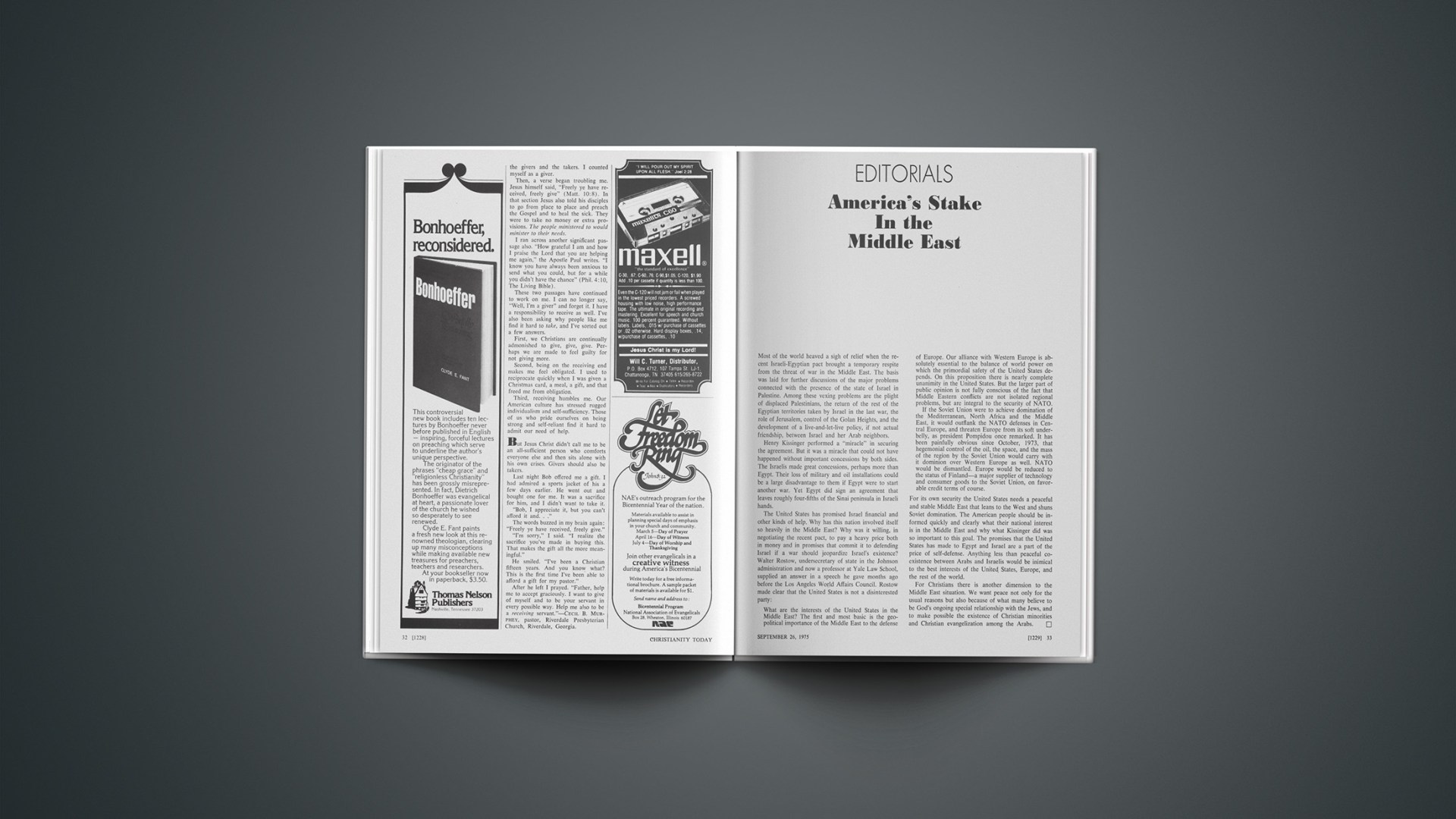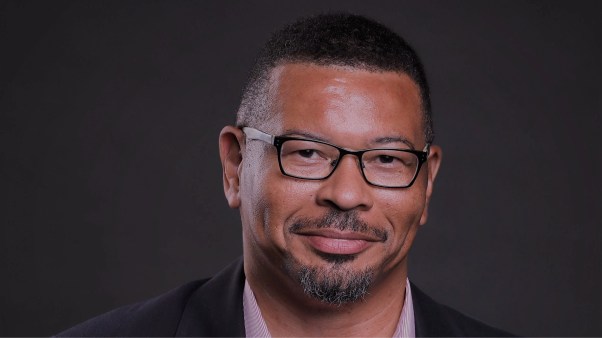That’s a sharp suit,” my hostess said as I entered her house.
“This suit?” I replied. “I got it a year ago, half-price at a discount store.”
I spoke the truth, but my unconscious motive had been to reject the compliment. I tend to ward off compliments, gifts, helping hands.
I am a minister of the Gospel, and I like to give. It may be inconvenient or exhausting, but I know how to give of myself. My difficulty comes at the other end. To receive graciously another’s help or love or friendship or kindness is hard for me to do.
Ever since a frightening incident a year ago, I’ve been struggling with this matter of giving and receiving. My wife and I had been out for the evening, and on our way home our car was hit from the rear by another car at a stop sign. Shirley had been resting her head on the headrest, and the impact jarred her forward and jerked her head back. She passed out.
Agonizing moments passed while someone called an ambulance. Shirley would come to, then pass out again. The ambulance came, and ten minutes later we were at the hospital. Several other emergency calls had come in just before us, including six victims of a violent car accident, all in critical condition, lying on stretchers. Shirley, seemingly not so seriously hurt, lay on the white-covered stretcher and waited.
Across the hall was a telephone. I hurried over and dialed a number. “Norval,” I blurted out, “Shirley’s been hurt. I don’t know how serious it is. I’m in the emergency room at DeKalb Hospital, waiting for them to examine her. Please pray!”
“Would you like me to come over?”
It was nearly 12:30. “No, it’s too late. Just pray.”
As soon as I hung up, I called Mary and Al Jepson. Mary was a member of our Christian writers’ group. “Mary, please pray with us. And would you call the other members of the group and ask them to pray, too?”
She too offered to come over, but I said, “It’s not necessary. The Lord can hear your prayers at home.”
Then the real waiting started. I found a chair, pulled it up next to the stretcher, and sat down. Another half hour passed. A nurse came by. “I’m sorry, Mr. Murphey, that you’ve had to wait so long. We’re almost through with the other emergencies. It shouldn’t be more than ten minutes more.”
I thanked her and tried to keep praying, to block the horrible thoughts that tried to intrude. Partial paralysis … some kind of permanent damage … unable to walk …
“Cec, there you are!”
I looked around.
“Norval! I told you not to—”
“I heard you. But I wanted to be here.”
“Norval, it’s so late. You’ve already spoiled your night’s sleep and—”
“And I’m here with two people I love,” he said simply. He took my hand and almost crushed my fingers.
Momentarily I turned away because I didn’t know how to respond. I was touched, but an appropriate expression of thanks refused to come out.
As I turned away, I saw someone else coming down the corridor. “Al Jepson!”
He smiled and said, “Got here as soon as I could. Mary’s called everybody in the group.”
“Al, you shouldn’t have—”
“I wanted to be with you, Cec. I know how lonely it can be in the hospital—especially when you don’t know how serious an injury is.”
I had been with many families in waiting rooms or standing in hallways outside intensive-care units. Many times a wife would grab me and hug me and the tears would flow. Or a husband would grip my hands and say over and over, “You don’t know what it means to have you here.” Now I knew. It had happened to me.
Shirley had twisted three vertebrae. She was allowed to go home but was not to leave her bed for thirty-six hours. As I helped her into our car, I tried to say thanks to my friends, but there were no adequate words. I finally mumbled something like, “I appreciate your coming.”
Al replied, “That’s what friends are for.”
That experience made me do a lot of thinking and heart-searching. My philosophy had been that there are basically two kinds of people in the world: the givers and the takers. I counted myself as a giver.
Then, a verse began troubling me. Jesus himself said, “Freely ye have received, freely give” (Matt. 10:8). In that section Jesus also told his disciples to go from place to place and preach the Gospel and to heal the sick. They were to take no money or extra provisions. The people ministered to would minister to their needs.
I ran across another significant passage also. “How grateful I am and how I praise the Lord that you are helping me again,” the Apostle Paul writes. “I know you have always been anxious to send what you could, but for a while you didn’t have the chance” (Phil. 4:10, The Living Bible).
These two passages have continued to work on me. I can no longer say, “Well, I’m a giver” and forget it. I have a responsibility to receive as well. I’ve also been asking why people like me find it hard to take, and I’ve sorted out a few answers.
First, we Christians are continually admonished to give, give, give. Perhaps we are made to feel guilty for not giving more.
Second, being on the receiving end makes me feel obligated. I used to reciprocate quickly when I was given a Christmas card, a meal, a gift, and that freed me from obligation.
Third, receiving humbles me. Our American culture has stressed rugged individualism and self-sufficiency. Those of us who pride ourselves on being strong and self-reliant find it hard to admit our need of help.
But Jesus Christ didn’t call me to be an all-sufficient person who comforts everyone else and then sits alone with his own crises. Givers should also be takers.
Last night Bob offered me a gift. I had admired a sports jacket of his a few days earlier. He went out and bought one for me. It was a sacrifice for him, and I didn’t want to take it.
“Bob, I appreciate it, but you can’t afford it and …”
The words buzzed in my brain again: “Freely ye have received, freely give.”
“I’m sorry,” I said. “I realize the sacrifice you’ve made in buying this. That makes the gift all the more meaningful.”
He smiled. “I’ve been a Christian fifteen years. And you know what? This is the first time I’ve been able to afford a gift for my pastor.”
After he left I prayed. “Father, help me to accept graciously. I want to give of myself and to be your servant in every possible way. Help me also to be a receiving servant.”—CECIL B. MURPHEY, pastor, Riverdale Presbyterian Church, Riverdale, Georgia.










